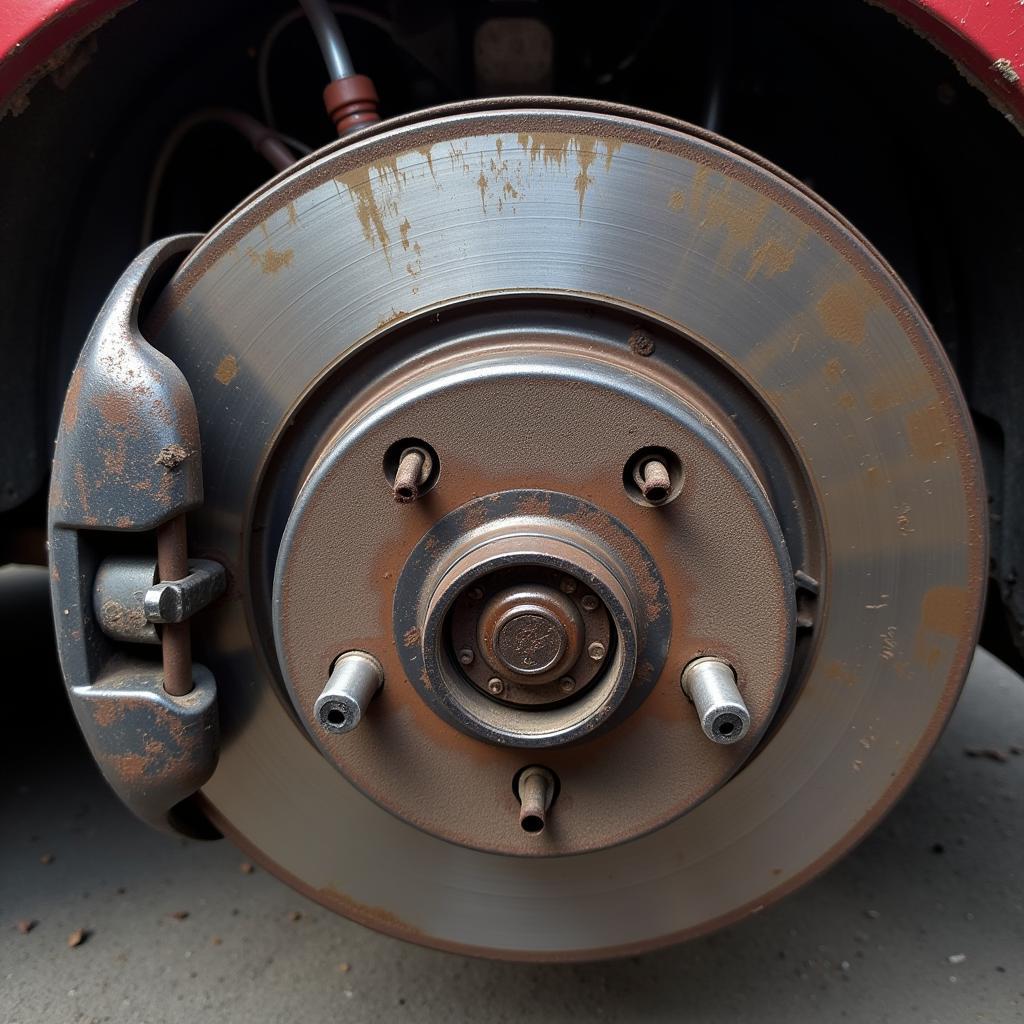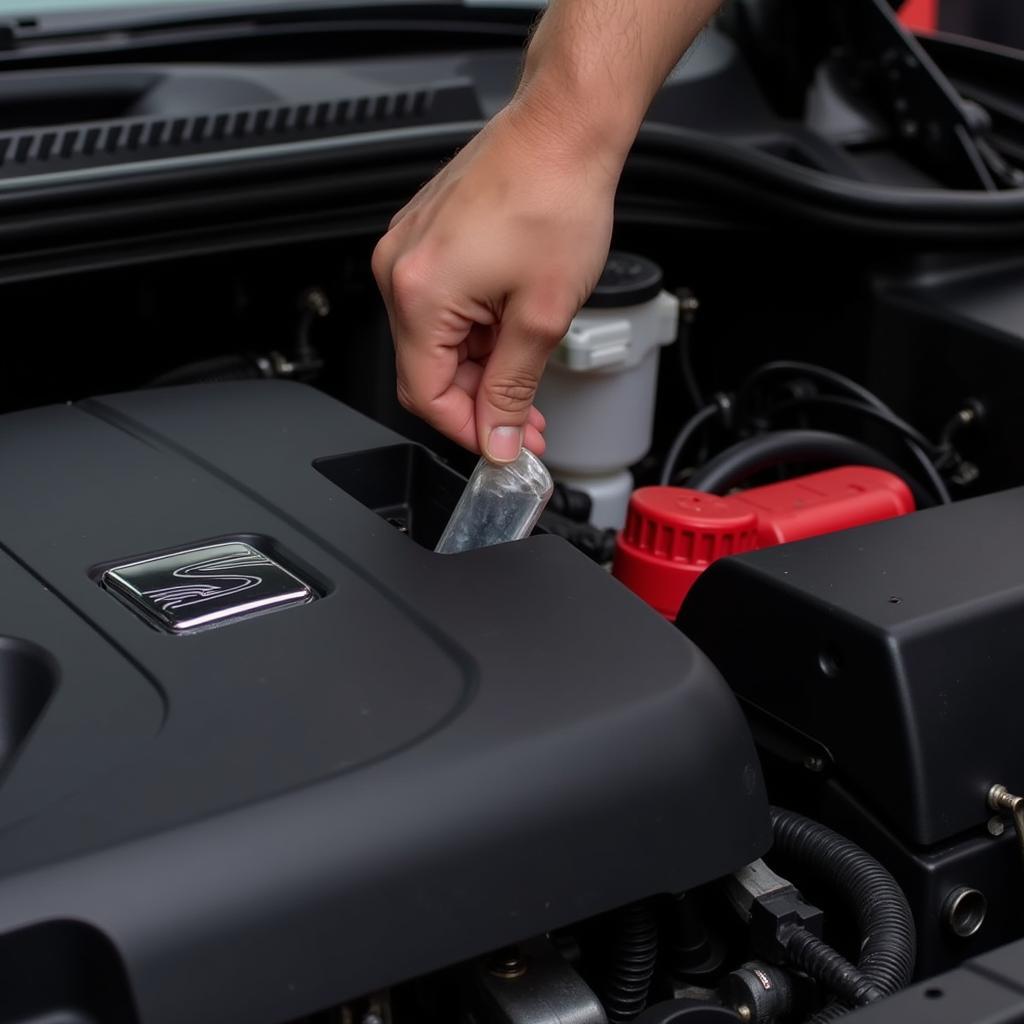A flashing or illuminated ABS warning light on your Seat Leon’s dashboard indicates a problem with the Anti-lock Braking System. This sophisticated safety feature prevents wheel lock-up during hard braking, ensuring optimal steering control and reducing stopping distances. Ignoring this warning light could compromise your safety and lead to more costly repairs in the future.
Understanding Your Seat Leon’s ABS System
The ABS system comprises several key components working in unison:
- Wheel Speed Sensors: These sensors, positioned at each wheel, constantly monitor wheel rotational speed, relaying this crucial information to the ABS control unit.
- ABS Control Unit: The brain of the system, the control unit, analyzes data from the wheel speed sensors to detect any potential wheel lock-up scenarios during braking.
- Hydraulic Control Unit: This unit regulates brake fluid pressure to each wheel independently, based on instructions from the ABS control unit.
Common Causes of Seat Leon ABS Warning Lights
Several factors can trigger the ABS warning light on your Seat Leon:
- Faulty Wheel Speed Sensors: A malfunctioning or dirty wheel speed sensor can send incorrect signals to the ABS control unit, triggering the warning light.
- Damaged ABS Wiring: Corrosion, wear and tear, or rodent damage to the ABS wiring harness can disrupt communication between system components.
- Low Brake Fluid Level: Insufficient brake fluid, often caused by leaks, can affect the hydraulic control unit’s performance and illuminate the ABS warning light.
- Defective ABS Control Unit: While less common, a failing ABS control unit can lead to various issues, including the illumination of the ABS warning light.
 Seat Leon ABS Wheel Speed Sensor
Seat Leon ABS Wheel Speed Sensor
Diagnosing the ABS Warning Light
Pinpointing the exact cause of the ABS warning light requires specialized diagnostic equipment. However, some troubleshooting steps can provide valuable clues:
- Visual Inspection: Begin by visually inspecting the ABS sensors and wiring for any visible damage, corrosion, or loose connections.
- Brake Fluid Check: Ensure the brake fluid reservoir is filled to the appropriate level with the correct brake fluid type, as specified in your Seat Leon owner’s manual.
- Professional Diagnosis: If a visual inspection and fluid check don’t reveal the issue, it’s crucial to consult a qualified mechanic specializing in Seat vehicles. They possess the expertise and diagnostic tools, such as an OBD-II scanner, to accurately identify the problem.
What to Do When the ABS Warning Light Comes On
- Stay Calm: While the ABS warning light can be concerning, it’s essential to remain calm and assess the situation.
- Reduce Speed and Drive Cautiously: Avoid sudden braking or aggressive maneuvers. Remember, your regular brakes will still function, but without the added safety net of ABS.
- Seek Professional Assistance: Contact a trusted mechanic or your local Seat dealership for a comprehensive diagnosis and repair.
Preventing Future ABS Warning Lights
Proactive maintenance can significantly reduce the likelihood of encountering ABS issues:
- Regular Brake Fluid Checks & Flushes: Consult your Seat Leon owner’s manual for the recommended brake fluid service intervals and adhere to them diligently.
- Timely Brake Inspections: Schedule routine brake inspections, especially if you notice any unusual noises or vibrations during braking.
- Careful Driving Habits: Avoid riding your brakes or engaging in harsh braking whenever possible.
 Checking Seat Leon Brake Fluid
Checking Seat Leon Brake Fluid
“Regular maintenance is key to a healthy ABS system,” says John Miller, a senior automotive technician with over 20 years of experience. “Don’t wait for warning lights to address potential issues.”
Conclusion
The ABS warning light in your Seat Leon should never be ignored. By understanding the system’s components, recognizing common warning signs, and seeking professional assistance promptly, you can ensure your safety on the road and potentially prevent more costly repairs down the line. Remember, proactive maintenance and safe driving habits go a long way in keeping your Seat Leon’s ABS system in optimal condition.
